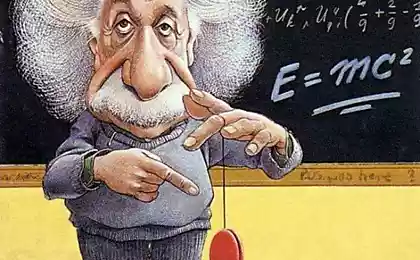502
How not to get tired of the work — the LAW of EQUAL EFFORT
Psychologist Tyler Tervuren about how important it is to deduce the correct rhythm of work, which You can keep always.
A few weeks ago, I ran my eighth marathon. I'm not the leading expert on the run. I never learned to do it properly, not working with a coach was not involved in the running club, and I'm pretty slow but I always I reach the finish line.

Preparation is important in this, but to reach the end of a hard race allows me to approach that I apply to my life in General. I call it the law of equal effort, and it is very simple: whatever may happen, apply an equal force. In accordance with this theory, the results you achieve may vary depending on the time, but in the end you get to the right places and feel much better when this happens.
This is an important approach, when You decide some sort of long-term goal and feel confident. This is an attractive approach because You feel that the situation is under control. You can't always decide when You will be difficult or easy, but You can decide how You will cope with the UPS and downs when they happen.
Here's how You can implement the law of equal effort in your daily life.
Define your "perpetual pace"
Every marathon runner knows that there is a certain speed, which — if you consistently support, will allow you to get to the finish line on time. If you run too fast, you run the risk of "burn out" and does not run or stay on pace and not get there in time. .
I know that my "perpetual pace" is a mile in 9 minutes 45 seconds. I feel I can run with this speed... forever. As for the marathon — run for a certain distance, I know that my optimal pace around 8:45. If I'm going to run with this speed, I run down to the end and be proud of the result.
But anyway, the idea is to exert equal effort within each time interval to bring the case to the end. This applies to any area of your life, and the knowledge of your eternal rhythm will allow you to make the right decisions.
The right pace for business
Let's say you want to open your business. First you ask yourself whether it's the project of a lifetime, that you are willing to deal with forever, or the project for a few years, you then want to sell. Each of these scenarios requires a certain rhythm. In the first case, you need to choose the speed that will allow you to move forever. This does not mean that you are now handcuffed to this business forever. But if you do not set the right pace, you will give up too early.
On the other hand, if you are building a business that is going to sell in a few years, you ask yourself, what needs to get done in two years, and what rhythm you will be able to support it to run. You may have to spur myself to complete the plan, but in any case, you need to determine the tempo: that at any moment you could understand, whether you are moving too quickly or too slowly.
The tempo for the relationship
Let's say you are an introvert and establish relations with a new friend or partner. Of course, you do not indicate the date when the relationship will end. If you start to act too quickly, you can burn out and get tired of the relationship. Or tired someone with whom you develop relationships. But if things go too slowly, you will be disappointed that nothing happens, or people will think that you are totally indifferent to them.
Marathon, business, relationships, anything in all these things it is important to know the pace that you can maintain and which will allow you to make the right decisions and to achieve something when you want.
When the pace needed to break
Knowing your pace, you know how much effort you need to exert in order to achieve the goal. But the problem is that life is much different. And is where the law is effort.
In marathon there is the difficulty — climbs that you slow down, and psychological complexity: in the beginning you are surrounded by energetic people who inspire you the desire to rush forward, but towards the end everyone around you is exhausted, and a desire to crawl, even run very long.
Newbie ignores your pace, when to stick to it most importantly, and trying to follow it, when it does not really matter. It lends itself to excitement and running too fast at the start, not realizing that squanders everything he will need in the end or sees that slows on the rise, and customize itself to accelerate. Both scenarios lead to fatigue and poor results.
Instead, it is important to learn to maintain equal effort for the entire race regardless of what happens to you along the way. In the beginning, when all depict a Sprinter, I hold back because I know that the energy I need. Towards the end I use this energy, when everything slowed down.
And, equally important, I'm not trying to keep up the pace come what may. If there is a sharp rise, I understand that you have to slow down. Nothing, catch up on the descent.
The law is effort in business
In business all the same: some days everything goes your way, you grab the head and want to quit. When it is difficult, many people start to work longer, push yourself until you reach the limit. Then comes the burnout, and when everything is back to normal, you need as much time to reload, you're behind. You find yourself in a vicious circle: work too much when you need to slow down and brake when you need to step it up.
What if to do the opposite?When it gets hard, keep working in the same rhythm. They are moving forward. But you will save strength and energy to push when everything will change for the better (like on the descent).
The law of equal effort into the relationship
According to some romantic movies, when the relationship starts any difficulties, you need to take and to make every effort to return all in the right direction. But those who managed to maintain with other a long, happy relationship, you know that it's not working. Trying to fix it, you can burn out, and when everything will return to normal mode, you will not be efforts to continue. And this provokes a new crisis.
Why not slow down when the difficulties begin? Act in a measured, calm, and then when the relationship will return to normal mode, increase the tempo. In tense moments to move forward is still difficult. Trust enough, people are annoyed and are trying to protect. It happens that the greater the effort, the worse it gets. But if you act carefully and deliberately, you can make a great leap into a more pleasant and peaceful times.
When the law is efforts work
Existential risk. When you are on the verge of collapse, the law of equal effort will not help. If your company is in deep crisis, or your spouse/business partner threatens to leave you, you have to fight, and then deal with the consequences.
Serious burnout. If you've been struggling, but exhausted and ready to give up, it's time to take a break. Yes, you will not sustain the pace — but at least finish the project.
The end is near. When you see the finish line, maintain a moderate pace to conserve energy it makes no sense. Indulge to the fullest and get to the end as quickly as possible — even if it falls from exhaustion.
If you are a highly motivated person, the law of equal effort seems unnatural and even wrong. But if you try to work some time, you will realize that it works great in many different areas of life.
It works because you exert the same effort, but at the same time align them with the mass of uncontrollable life situations without compromising their future.published
P. S. And remember, just changing your mind — together we change the world! ©
Join us in Facebook , Vkontakte, Odnoklassniki
Source: ideanomics.ru/?p=5341
A few weeks ago, I ran my eighth marathon. I'm not the leading expert on the run. I never learned to do it properly, not working with a coach was not involved in the running club, and I'm pretty slow but I always I reach the finish line.

Preparation is important in this, but to reach the end of a hard race allows me to approach that I apply to my life in General. I call it the law of equal effort, and it is very simple: whatever may happen, apply an equal force. In accordance with this theory, the results you achieve may vary depending on the time, but in the end you get to the right places and feel much better when this happens.
This is an important approach, when You decide some sort of long-term goal and feel confident. This is an attractive approach because You feel that the situation is under control. You can't always decide when You will be difficult or easy, but You can decide how You will cope with the UPS and downs when they happen.
Here's how You can implement the law of equal effort in your daily life.
Define your "perpetual pace"
Every marathon runner knows that there is a certain speed, which — if you consistently support, will allow you to get to the finish line on time. If you run too fast, you run the risk of "burn out" and does not run or stay on pace and not get there in time. .
I know that my "perpetual pace" is a mile in 9 minutes 45 seconds. I feel I can run with this speed... forever. As for the marathon — run for a certain distance, I know that my optimal pace around 8:45. If I'm going to run with this speed, I run down to the end and be proud of the result.
But anyway, the idea is to exert equal effort within each time interval to bring the case to the end. This applies to any area of your life, and the knowledge of your eternal rhythm will allow you to make the right decisions.
The right pace for business
Let's say you want to open your business. First you ask yourself whether it's the project of a lifetime, that you are willing to deal with forever, or the project for a few years, you then want to sell. Each of these scenarios requires a certain rhythm. In the first case, you need to choose the speed that will allow you to move forever. This does not mean that you are now handcuffed to this business forever. But if you do not set the right pace, you will give up too early.
On the other hand, if you are building a business that is going to sell in a few years, you ask yourself, what needs to get done in two years, and what rhythm you will be able to support it to run. You may have to spur myself to complete the plan, but in any case, you need to determine the tempo: that at any moment you could understand, whether you are moving too quickly or too slowly.
The tempo for the relationship
Let's say you are an introvert and establish relations with a new friend or partner. Of course, you do not indicate the date when the relationship will end. If you start to act too quickly, you can burn out and get tired of the relationship. Or tired someone with whom you develop relationships. But if things go too slowly, you will be disappointed that nothing happens, or people will think that you are totally indifferent to them.
Marathon, business, relationships, anything in all these things it is important to know the pace that you can maintain and which will allow you to make the right decisions and to achieve something when you want.
When the pace needed to break
Knowing your pace, you know how much effort you need to exert in order to achieve the goal. But the problem is that life is much different. And is where the law is effort.
In marathon there is the difficulty — climbs that you slow down, and psychological complexity: in the beginning you are surrounded by energetic people who inspire you the desire to rush forward, but towards the end everyone around you is exhausted, and a desire to crawl, even run very long.
Newbie ignores your pace, when to stick to it most importantly, and trying to follow it, when it does not really matter. It lends itself to excitement and running too fast at the start, not realizing that squanders everything he will need in the end or sees that slows on the rise, and customize itself to accelerate. Both scenarios lead to fatigue and poor results.
Instead, it is important to learn to maintain equal effort for the entire race regardless of what happens to you along the way. In the beginning, when all depict a Sprinter, I hold back because I know that the energy I need. Towards the end I use this energy, when everything slowed down.
And, equally important, I'm not trying to keep up the pace come what may. If there is a sharp rise, I understand that you have to slow down. Nothing, catch up on the descent.
The law is effort in business
In business all the same: some days everything goes your way, you grab the head and want to quit. When it is difficult, many people start to work longer, push yourself until you reach the limit. Then comes the burnout, and when everything is back to normal, you need as much time to reload, you're behind. You find yourself in a vicious circle: work too much when you need to slow down and brake when you need to step it up.
What if to do the opposite?When it gets hard, keep working in the same rhythm. They are moving forward. But you will save strength and energy to push when everything will change for the better (like on the descent).
The law of equal effort into the relationship
According to some romantic movies, when the relationship starts any difficulties, you need to take and to make every effort to return all in the right direction. But those who managed to maintain with other a long, happy relationship, you know that it's not working. Trying to fix it, you can burn out, and when everything will return to normal mode, you will not be efforts to continue. And this provokes a new crisis.
Why not slow down when the difficulties begin? Act in a measured, calm, and then when the relationship will return to normal mode, increase the tempo. In tense moments to move forward is still difficult. Trust enough, people are annoyed and are trying to protect. It happens that the greater the effort, the worse it gets. But if you act carefully and deliberately, you can make a great leap into a more pleasant and peaceful times.
When the law is efforts work
Existential risk. When you are on the verge of collapse, the law of equal effort will not help. If your company is in deep crisis, or your spouse/business partner threatens to leave you, you have to fight, and then deal with the consequences.
Serious burnout. If you've been struggling, but exhausted and ready to give up, it's time to take a break. Yes, you will not sustain the pace — but at least finish the project.
The end is near. When you see the finish line, maintain a moderate pace to conserve energy it makes no sense. Indulge to the fullest and get to the end as quickly as possible — even if it falls from exhaustion.
If you are a highly motivated person, the law of equal effort seems unnatural and even wrong. But if you try to work some time, you will realize that it works great in many different areas of life.
It works because you exert the same effort, but at the same time align them with the mass of uncontrollable life situations without compromising their future.published
P. S. And remember, just changing your mind — together we change the world! ©
Join us in Facebook , Vkontakte, Odnoklassniki
Source: ideanomics.ru/?p=5341























